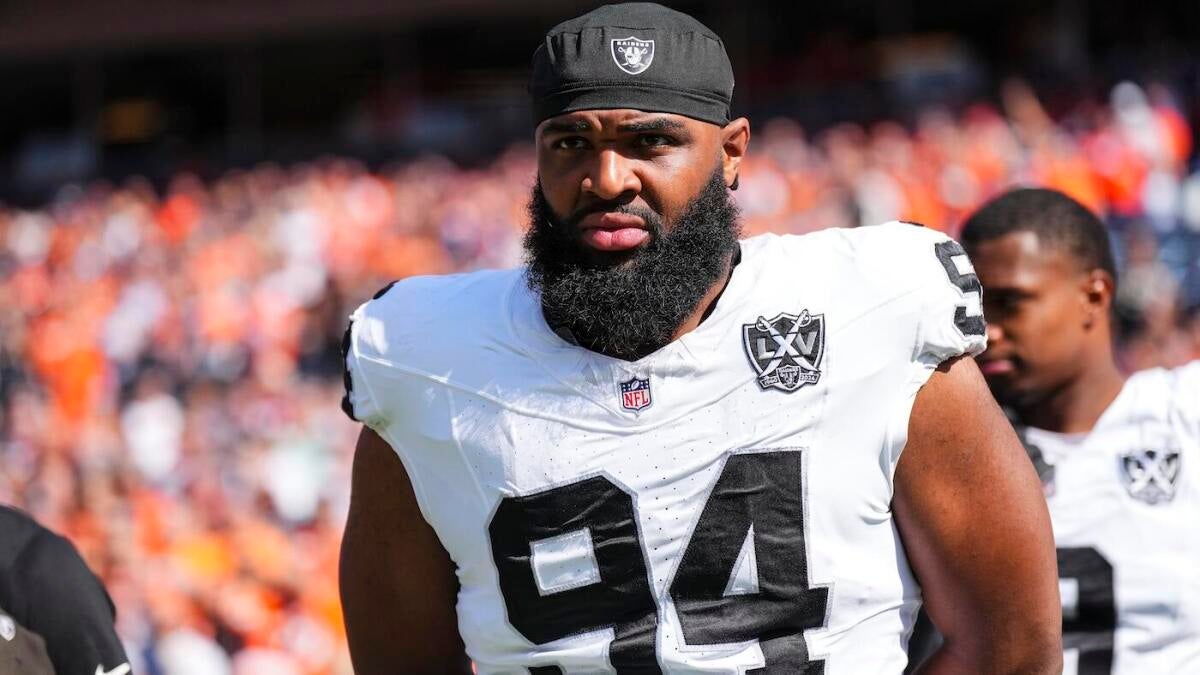The Evolving Landscape of Workplace Conduct in Professional Sports: The Christian Wilkins Case
Introduction: A Playful Gesture with Profound Implications
The recent release of Christian Wilkins by the Las Vegas Raiders has ignited a complex debate about workplace conduct in professional sports. Initially framed as a result of contractual disputes and injury concerns, the narrative shifted dramatically when reports emerged of an alleged “playful kiss” that led to a Human Resources complaint. This incident raises critical questions about the boundaries of acceptable behavior, the evolving standards of workplace conduct, and the implications for both players and organizations in the NFL.
The Incident: A Kiss That Crossed the Line
The core of this controversy revolves around a seemingly innocuous act—a “playful kiss” on the top of a teammate’s head. According to reports, Wilkins, known for his jovial demeanor, intended the gesture as a lighthearted expression of camaraderie. However, the recipient of the kiss perceived it differently, leading to a formal complaint with the Raiders’ HR department. This discrepancy in perception underscores the shifting dynamics of workplace interactions in professional sports.
The Changing Tides of Workplace Norms
What might have been dismissed as locker-room banter in the past is now subject to heightened scrutiny. The NFL, like many industries, is grappling with the consequences of increased awareness around workplace harassment and the importance of respecting personal boundaries. The reaction to Wilkins’ gesture reflects a broader cultural shift where actions, even those intended to be playful, are evaluated through the lens of consent and mutual respect.
Context Matters: Unpacking the Nuances
The interpretation of Wilkins’ actions hinges on several contextual factors. The nature of the relationship between Wilkins and his teammate, any prior interactions, and the broader locker-room culture all play a role in shaping the perception of the incident. Without a comprehensive understanding of these dynamics, it is challenging to assess the appropriateness of the gesture. However, the fact that the teammate felt compelled to file a complaint suggests that the act, regardless of intent, was perceived as a violation of personal boundaries.
The Raiders’ Response: A Zero-Tolerance Approach?
The Raiders’ decision to release Wilkins has sparked debate about the team’s motivations and the broader implications for player conduct. While the team maintains that the release was not solely based on the kiss, the timing of the decision raises questions about the role of the HR complaint in the decision-making process.
A Shift in Team Culture?
The Raiders’ actions could signal a new era of zero-tolerance policies in the NFL, where behavior that could be perceived as harassment, even if unintentional, is met with severe consequences. This approach aligns with the growing emphasis on creating inclusive and respectful work environments across industries. However, it also raises concerns about due process and the potential for overreaction.
The Importance of Fairness and Transparency
For the Raiders to justify the release of Wilkins, they must demonstrate that a thorough investigation was conducted and that the decision was based on a clear violation of team policies. The lack of transparency surrounding the incident and the team’s decision-making process has fueled speculation and criticism. Moving forward, NFL teams must prioritize fairness and transparency in handling such matters to maintain trust among players and the public.
Financial Implications: The Voided Contract
The Raiders’ attempt to void the remaining $35.2 million guaranteed in Wilkins’ contract adds another layer of complexity to the situation. Voiding a contract based on behavioral clauses requires substantial evidence of wrongdoing, and the Raiders must prove that Wilkins’ actions constituted a breach of contract.
The Legal Battle Ahead
The financial stakes of this case are significant, and the outcome could set a precedent for future contract disputes in the NFL. If the Raiders succeed in voiding the contract, it would send a strong message to players about the consequences of off-field conduct. Conversely, if Wilkins prevails, it would reinforce the importance of guaranteed contracts and the need for clear disciplinary procedures.
Broader Implications for the NFL and Professional Sports
The Christian Wilkins case highlights the broader challenges facing the NFL and professional sports in adapting to evolving workplace standards. The incident serves as a reminder that even seemingly harmless actions can have significant consequences in today’s environment.
The Need for Comprehensive Training and Education
NFL teams must proactively address issues of workplace harassment and ensure that players, coaches, and staff understand the organization’s expectations. This includes providing education on topics such as consent, boundaries, and appropriate workplace behavior. Comprehensive training programs can help prevent misunderstandings and foster a culture of respect.
The Power of Players in Shaping Team Culture
The Wilkins case also underscores the growing influence of players in shaping team culture. In an era of player empowerment, athletes are increasingly willing to speak out against perceived injustices and demand a more inclusive and respectful environment. Teams that fail to adapt to this new reality risk creating a toxic locker-room atmosphere and alienating their players.
Conclusion: A New Era of Accountability
The Christian Wilkins incident is more than just a quirky news story; it is a reflection of a changing social landscape. It signals that what was once considered acceptable behavior in the locker room is no longer tolerated. The case serves as a wake-up call for NFL teams to prioritize creating a more inclusive and respectful environment, where every player feels safe, valued, and respected.
As the NFL navigates this new era of heightened sensitivity, it must strive to balance the need for accountability with fairness and transparency. The “playful kiss” that led to Wilkins’ release may have inadvertently ushered in a new era of accountability in professional sports, one where actions are judged not only by intent but also by their impact on others. The lessons learned from this case will undoubtedly shape the future of workplace conduct in the NFL and beyond.

